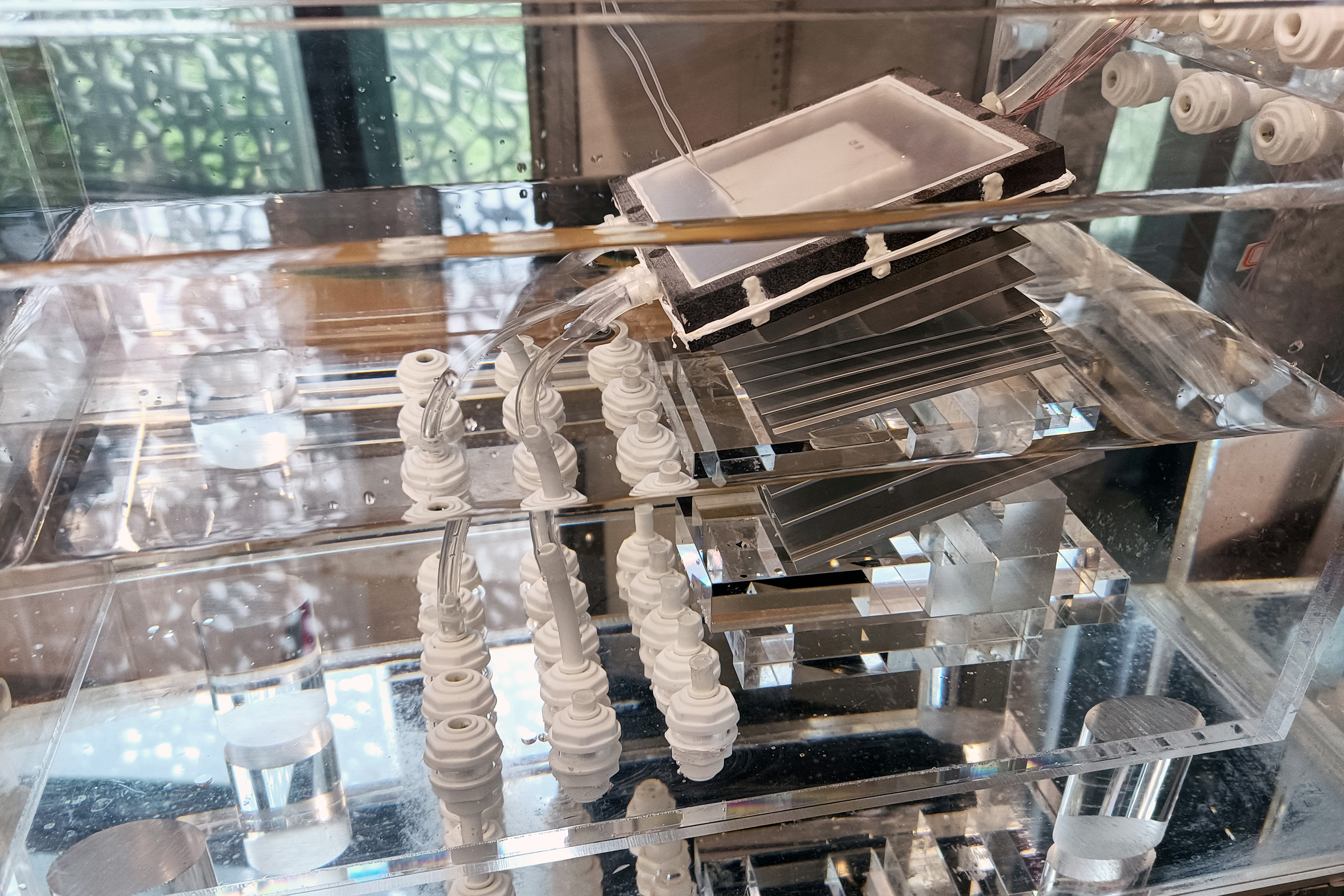Engineers at MIT and in China are aiming to turn seawater into drinking water with a completely passive device that is inspired by the ocean, and powered by the sun.
In a paper appearing today in the journal Joule, the team outlines the design for a new solar desalination system that takes in saltwater and heats it with natural sunlight.
The researchers estimate that if the system is scaled up to the size of a small suitcase, it could produce about 4 to 6 liters of drinking water per hour and last several years before requiring replacement parts. At this scale and performance, the system could produce drinking water at a rate and price that is cheaper than tap water.



But the water is all being returned to the ocean rather quickly. It’s not quite the same with CO2.
There’s some localized issues to deal with, but it’s not going to be a global salinity increase as we aren’t changing the form of the water and storing it, like the polar ice does.
So in fact, the ocean should already be desalinating slightly from the melting ice caps.
I thought about the ice caps, yeah. It’s just something that warrants long term monitoring and observation.